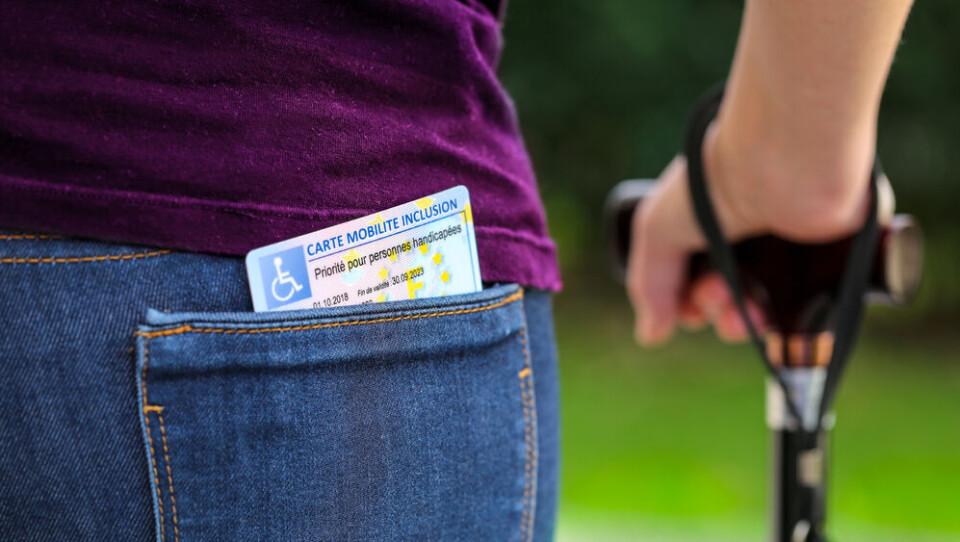-
Police across France hunt abandoned cars to free up spaces in urban areas
Vehicles cannot be parked on a public road in the same place for more than seven days
-
How accurate are time estimates for French hiking paths?
Mathematical formula is basis for sign figures
-
My French cleaner is too familiar with me
Columnist Cynthia Spillman advises a reader on setting boundaries
Blue parking badge for disabled: Are there benefits beyond parking?
Eligible people can also apply for other cards that offer more

Reader question: What are the benefits of a French disabled person’s blue badge? Is it just for parking or are there other associated elements? M.S.
The parking badge, which is what most people know of, is restricted to parking advantages - but when you apply, you can also apply for one of two other cards that give further benefits.
In recent years, cards for disabled people’s various advantages were grouped together, all called carte mobilité inclusion (CMI, mobility and inclusion card).
There is one called CMI stationnement, which is now a credit card-sized badge that can be left on the dashboard or slipped into a holder on the windscreen of the car, for parking advantages.
This allows you to use any public parking space free of charge, whether or not marked as being for disabled people.
Read more: Using French blue disabled parking badge in UK
However, this does not include privately-owned car parks or any with automatic entrance and exit barriers. These might have spaces reserved for disabled people but will still be paid-for.
Note that some communes have bylaws limiting the length of time disabled people can park, which should not be less than 12 hours. In some areas, you need to obtain proof of the start of the parking period, such as by obtaining a free ticket from a parking meter, or registering your numberplate on an app.
The CMI stationnement should be used only when the disabled person is present. It does not have to be used with a specific car.
You apply for it from the departmental council if you are a claimant of the APA benefit for dependency needs, or otherwise from the maison départementale des personnes handicapées.
You can also apply at the same time for a second card, to carry with you, marked as either CMI priorité or CMI invalidité, if you meet certain eligibility criteria.
Read more: Housing, disability, family: the French state aids people do not know
The latter has the same benefits as the other, plus extra benefits. Eligibility for these depends on the degree of your disability and difficulties in daily life.
The priorité card gives the right to a seat on public transport and in waiting rooms, and to be prioritised in queues. To be eligible, you should have a health condition meaning it is difficult to stand for long periods.
The CMI invalidité, for the severely disabled, also entitles holders to benefit from rules on disabled workers (including special adaptations of the working space and working times), tax advantages such as an extra half ‘part’ for income tax (a mechanism which results in a reduced tax bill), and reductions on transport tickets with SNCF, RATP and Air France.
Related stories:
French firms given financial support to employ disabled workers
Family benefits due to stop for Britons in France if no residency card
France pledges €240m for struggling at-home elderly care services
























